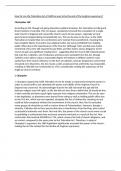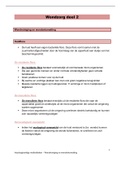How far can the Toleration Act of 1689 be seen to be the end of the Anglican supremacy?
Christopher Hill
According to Hill, though not giving dissenters political inclusion, the Toleration Act did grant
them freedom of worship. This, he argues, resultantly removed the conception of a single
state church in England and caused the church courts to lose power, especially as local
governments stopped being ecclesiastically run. This can be seen to be true, as the 1689
Toleration Act stated that non-conformists were exempt from punishment, meaning they
had complete liberty to practice non-Anglican faiths, but were prohibited from holding
public office due to the maintenance of the Test Act. Although, their worship was closely
monitored, they were still required to pay tithes and they had to swear allegiance to the
church to gain any significant employment – suggesting that the church still retained power.
Not only this, Catholics, non-Trinitarians and Jews were excluded from the Act, though
Catholics were able to enjoy a reasonable degree of freedom as William used his royal
authority to limit church influence on the lives of Catholics. Overall, despite the control that
remained over dissenters, the Act meant a wide acceptance that uniformity was impossible,
resulting in 400,000 non-conformists by 1714, considerably eroding the supremacy of the
Anglican Church in Britain.
J. Champion
J. Champion regards the 1689 Toleration Act to be simply a compromise between powers in
order to avoid conflict, but ultimately the power and validity of the Anglican Church in
England was conserved. He acknowledges that the Act did not break the age-old link
between religion and civil rights, as the law did not stem from a belief that all should be free
in their worship and have equal rights separate from religious orientation. This can be seen
in the legislation, as dissenters were barred from voting as well as holding public office due
to the Test Act, which was not repealed, alongside the Act of Uniformity, meaning no one
could be fully competent without the involvement in the church. Also, the Act excluded
many groups of minorities as well as various forms of Protestantism. However, though a
minority, Catholics did not face persecution due to interference from the King, who curbed
ecclesiastical authority over them. Not only this, the power of the church courts were crucial
to upholding a confessional state and were severely restricted as a result of the Act. Non-
conformists had reached 400,000 by 1714, which conveys the lack of church allegiance, and
so control, compared to the years prior to the Toleration Act. Therefore, in spite of
Champion’s argument, the 1689 legislation significantly wounded the power of the church,
making the Act the catalyst for the decline of Anglican supremacy.





